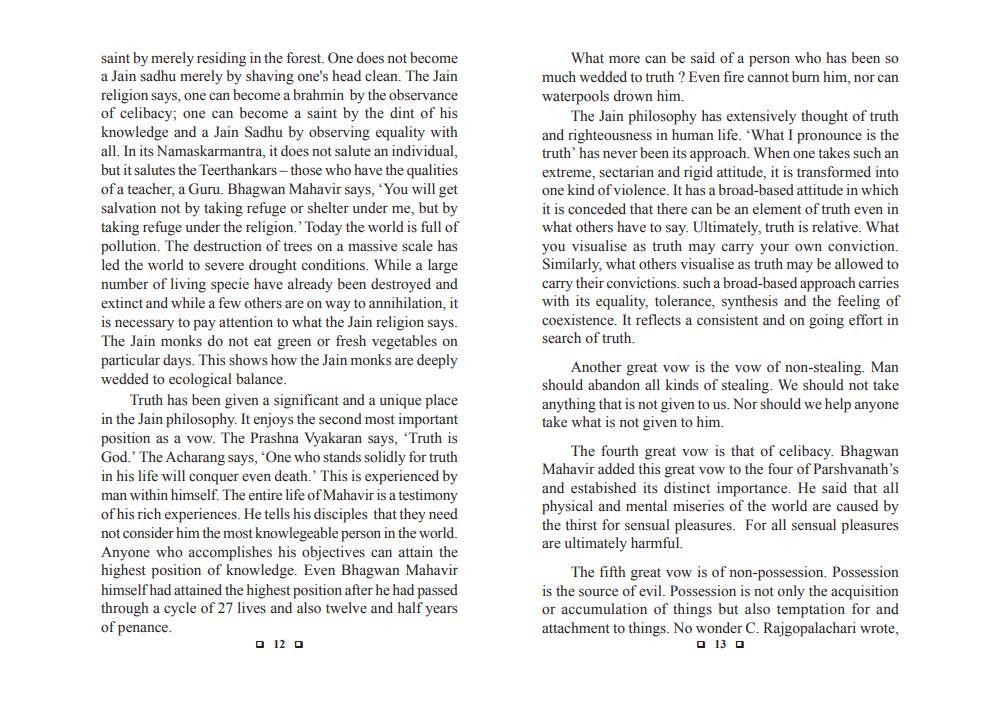________________
saint by merely residing in the forest. One does not become a Jain sadhu merely by shaving one's head clean. The Jain religion says, one can become a brahmin by the observance of celibacy; one can become a saint by the dint of his knowledge and a Jain Sadhu by observing equality with all. In its Namaskarmantra, it does not salute an individual, but it salutes the Teerthankars- those who have the qualities of a teacher, a Guru. Bhagwan Mahavir says, 'You will get salvation not by taking refuge or shelter under me, but by taking refuge under the religion.' Today the world is full of pollution. The destruction of trees on a massive scale has led the world to severe drought conditions. While a large number of living specie have already been destroyed and extinct and while a few others are on way to annihilation, it is necessary to pay attention to what the Jain religion says. The Jain monks do not eat green or fresh vegetables on particular days. This shows how the Jain monks are deeply wedded to ecological balance.
Truth has been given a significant and a unique place in the Jain philosophy. It enjoys the second most important position as a vow. The Prashna Vyakaran says, 'Truth is God.' The Acharang says, 'One who stands solidly for truth in his life will conquer even death." This is experienced by man within himself. The entire life of Mahavir is a testimony of his rich experiences. He tells his disciples that they need not consider him the most knowlegeable person in the world. Anyone who accomplishes his objectives can attain the highest position of knowledge. Even Bhagwan Mahavir himself had attained the highest position after he had passed through a cycle of 27 lives and also twelve and half years of penance.
ם 12 ם
What more can be said of a person who has been so much wedded to truth? Even fire cannot burn him, nor can waterpools drown him.
The Jain philosophy has extensively thought of truth and righteousness in human life. 'What I pronounce is the truth' has never been its approach. When one takes such an extreme, sectarian and rigid attitude, it is transformed into one kind of violence. It has a broad-based attitude in which it is conceded that there can be an element of truth even in what others have to say. Ultimately, truth is relative. What you visualise as truth may carry your own conviction. Similarly, what others visualise as truth may be allowed to carry their convictions. such a broad-based approach carries with its equality, tolerance, synthesis and the feeling of coexistence. It reflects a consistent and on going effort in search of truth.
Another great vow is the vow of non-stealing. Man should abandon all kinds of stealing. We should not take anything that is not given to us. Nor should we help anyone take what is not given to him.
The fourth great vow is that of celibacy. Bhagwan Mahavir added this great vow to the four of Parshvanath's and estabished its distinct importance. He said that all physical and mental miseries of the world are caused by the thirst for sensual pleasures. For all sensual pleasures are ultimately harmful.
The fifth great vow is of non-possession. Possession is the source of evil. Possession is not only the acquisition or accumulation of things but also temptation for and attachment to things. No wonder C. Rajgopalachari wrote,
☐ 13 a




